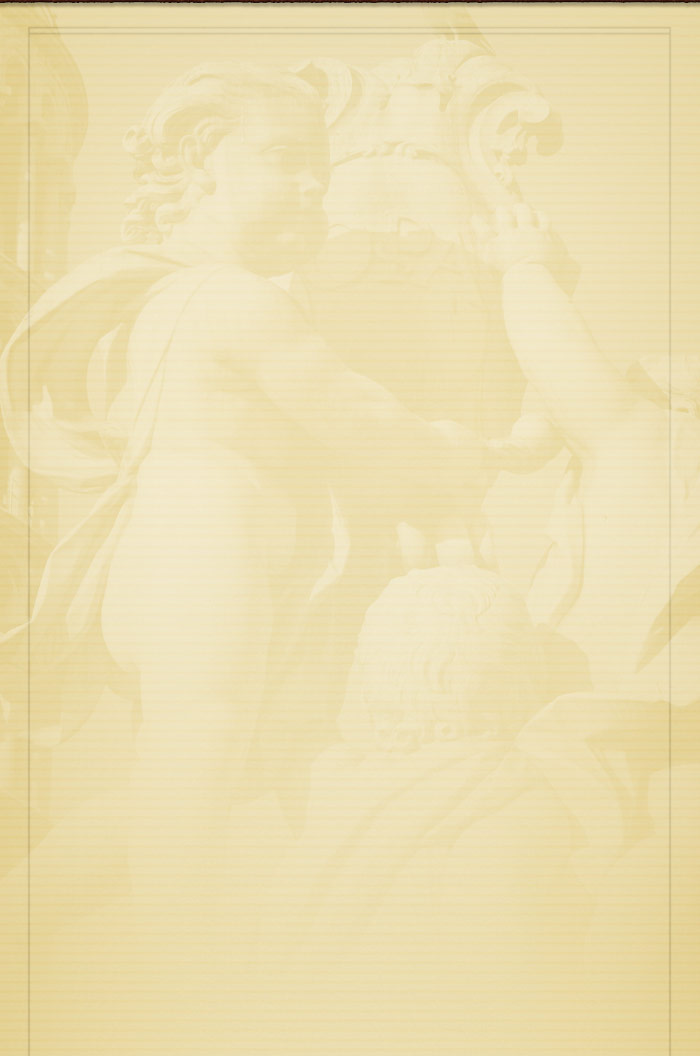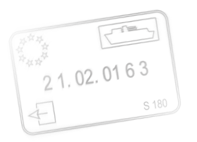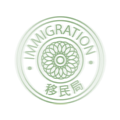The January 2009 program will offer three courses in language, literature and culture. Each course is worth three hours of credit. Students may take one or two courses from this list.
SPAN 3 Intermediate Spanish
Winter Intersession 2009
Time: 9:30 a.m. to 11:00 p.m.
Instructor: Alejandro Alonso,
Department of Modern Languages and Literatures, Brooklyn College
e-mail: aalonso@gc.cuny.edu
Course objectives
-To develop the basic skills that permit an oral communication in Spanish.
-To improve his/her oral and written comprehension.
-To explain composition techniques useful for proffesional and personal written messages,
-To review the basic Grammar and Vocabulary.
-To have an immersion in daily life situations through the interaction with native speakers in.
-To obtain a much deeper knowledge of the Spanish Culture through all these activities.
Course description
This class has been thought as a continuation of the Spanish 1 and 2 classes and fulfills the Language Requirement at Brooklyn College. Since the whole sequence is based on the natural approach, the students improve their skills through practice, both individual and colective, without using the English as instrument for the explanations, in a natural and spontaneous classroom atmosphere. The office hours, the book and supplementary materials will let the student to succeed in obtaining a good coommunication and an extensive oral and written comprehension in three semesters.
The classes are conducted in Spanish.
Materials
Andrade, M et alii. Dos mundos. Sixth edition. Mac Graw and Hill.
Dos Mundos. Sixth edition. Workbook.
Photocopied materials.
Songs, poems, and movies.
Requirements
1. Weekly exams 30 %
2. Final exam 20%
3. Workbook 15%
4. Language lab 15%
5. Compositions 10%
6. Attendance and Class part. 10%
Calendar
First Week: Review of Spanish 1 & 2 with Focus on Chapters 4, 6 and 7.
The narration in the past.
Memories of Childhood: first composition
First composition
Second Week: Chapter 11.
Commands.
Instructions to survive in the city: exploring Buenos Aires with maps
Second composition
Third Week: Chapter 12 and 13
Subjective ideas: desires, opnions, doubts, advices.
Visiting the doctor.
Third composition: writing a Guide of Buenos Aires for “turistas”.
Fourth Week: Chapter 14 and Review.
The future: plans for vacations.
Ready to travel.
Fourth composition: what will we do after our travel abroad?
SPAN 18.90 Contemporary Cultures of the River Plate Nations
Winter Intersession 2009
Time: 11:30 a.m. to 1:00 p.m. and as listed below
Instructor: Mark McMeley,
Department of History, Brooklyn College
e-mail: mmcmeley@brooklyn.cuny.edu
phone (Brooklyn College): 718-951-5000, ext. 2816
phone (Buenos Aires) : home, dialing locally, 4703-0034, or
cell, 15-6360-6649
Office hours: by appointment
Course books
Course reader (on CD), provided at Orientation
Bioy Casares, Adolfo. Diary of the War of the Pig.
Nouzeilles, Gabriela, and Graciela Montaldo, eds.
The Argentina Reader: History, Culture, Politics. Duke University Press, 2002. ISBN: 978-0-8223-2914-5 (recommended)
Description
Buenos Aires, Argentina and the nearby city of Montevideo, Uruguay present two excellent opportunities to explore art and the humanities within the political and economic context of contemporary Latin America. Both Argentina and Uruguay returned to democratic rule in the early 1980s and since that time have overcome the tensions of the military years and recent economic crises with a commitment to representative government and civic life. Buenos Aires and Montevideo have long been known as centers of Latin American art and intellectual pursuits, with such artists as Joaquín Torres García and Pedro Figari, and writers such as Julio Cortázar, Silvina Ocampo and Jorge Luís Borges drawing inspiration from the area’s mix of European, indigenous and African traditions. This intensive intersession course will introduce American college students to the history, politics, art and literature of these two capital cities on the River Plate. Subjects of study will range from the colonial period to the present and will connect art and history to difficult social questions faced by all of Latin America in the 21st century.
Classes meet at a local language institute and in various museums and sites around both cities. Short lectures from the principal instructor will introduce the topics to be studied, but most class time will be devoted to discussion of readings and experiences outside the classroom. Readings include a variety of genres, with historical works devoted to Argentine and Uruguayan culture (Hernández, Sarmiento, Rodó), short stories from important 20th century fiction writers (Cortázar, Ocampo, Bioy Casares, Arlt), one short allegorical novel on the Perón years (Bioy Casares), personal recollections and government reports from various perspectives on the “Dirty War” of the 1970s (Actis, National Commission on the Disappeared, Argentine Patriotic Association), and critical pieces on tango and ethnicity (Corradi, Andrews). Most readings are in Spanish and all class discussions are conducted in Spanish. Classroom work will be supplemented with guided tours of the Isaac Fernández Blanco Museum of Colonial Art, the new Museum of Latin American Art, the Jewish cultural center, the studio of contemporary artist Luís Niveiro, the regional office of the United Nations High Commission for Refugees, and the Espacio Para la Memoria, a former secret detention center recently turned into a museum documenting the thousands of Argentines “disappeared” during the military regime of the 1970s. In addition, the group will spend three days in Montevideo, concentrating on the musical traditions of European immigrants and the African diaspora through a guest lecture and musical performance, and attendance at a comparsa parade and murga rehearsal that mark the beginning of the Carnaval season. Grades for the course will be based on attendance and participation, in-class written analyses of readings, and a final, oral presentation that includes a written summary.
Reading Assignments
Reading assignments from the course reader and outside texts are listed below. We will begin discussions with a short in-class writing exercise, which will ask class members to respond critically to a question treated in that day’s reading. Ours is a common enterprise and the success of our effort will depend on everyone coming to class having read the day’s assignment.
Attendance
Class members are expected to attend all class sessions and group functions, to arrive on time and to remain with the group for the entire class period or event.
Grades
The final grade will be divided in thirds, one-third for each of the following categories: 1) five brief in-class essays evaluating assigned readings, 2) active participation in class and group activities, and 3) a final, 15-minute oral presentation on an individual research project with one-page written summary. Since our class will disperse on January 21, all course work must be completed before leaving Argentina.
Program and course schedule:
Saturday, December 27, 2008
Students arrive at Ezeiza International Airport. The program director will be at the airport to receive students arriving on the various flights this morning, to direct them to the airport bank to change money, and to get them in a private bus to downtown lodgings. The bus will leave the airport after the last morning flights, by approximately 11:30 a.m.
Students will be checked into lodgings (tentatively the Concord Callao apartments, Callao 1234, located near the intersection of Santa Fe and Callao avenues). Rest of the afternoon is free.
Sunday, December 28, 2008
Group meets in the building lobby at noon for a subway and walking tour through the Plaza de Mayo to see the national executive building and the colonial-era cabildo, and San Telmo, one of the city’s most storied neighborhoods, that received thousands of Italian immigrants in the early 19th century, gave rise to tango, and now hosts a popular market of antiques and art. We’ll return to the Concord by late afternoon.
The group meets again in the lobby at 8:15 p.m. for departure in private car service to Puerto Madero, for a welcome buffet dinner at La Bistecca.
Monday, December 29, 2008
Brief lecture on the history of the River Plate. Discussion on readings from:
Hernández, José. The Gaucho Martín Fierro, Argentina Reader (hereafter AR), 133-145
Rodó, José Enrique. Ariel, 49-51, 70-83, 93-101
Sarmiento, Domingo F. Facundo, AR, 80-90
Tuesday, December 30, 2008
Ethnic diversity and class in early 20th century Buenos Aires: In-class writing #1 at beginning of period. Discussion on readings from:
Andrews, Afro-Argentines, 138-155
Arlt, “Small Time Property Owners”
Numuncurá and various readings, AR, 154-156, 170-181, 188-195
Meet in the Concord lobby at 9 p.m. for taxis to the tango class, starting at 9:30 p.m., in the Cafetería Ideal, Suipacha 380. Milonga begins at 11 p.m.
Wednesday, December 31, 2008
The Proceso militar, the return of democracy, and the struggles of civil society. In-class writing #2. Reading:
Nunca Más and various readings, AR, 421-464
Thursday, January 1, 2009
Free day.
Friday, January 2, 2009
Brief class continuing discussion of previous readings. Depart at 1:15 p.m. for a 2:00 tour of the colonial art collection at the Isaac Fernández Blanco Museum.
Evening: A contemporary porteño artist and his work. Meet in the Concord lobby at 8 p.m. to walk to the studio and home of Buenos Aires artist Luis Niveiro, Montevideo 241, Departamento 3.
Saturday, January 3, 2009
Meet in the lobby at 9 a.m. for trip by train and boat to Tigre, the delta area of summer homes, restaurants and water sports upriver from Buenos Aires, and the location of the Bioy Casares short story. Lunch at the Bora Bora restaurant in the Tres Bocas area. Return to Buenos Aires around 6 p.m.
Sunday, January 4, 2009
Free day.
Monday, January 5, 2009
Class departs Universidad de Palermo at 11:30 for a 12 noon tour of AMIA, the Jewish cultural center of Buenos Aires and site of the 1994 bombing.
Tuesday, January 6, 2009
Argentina’s literature of the fantastic in historical perspective. In-class writing #3. Readings:
Bioy Casares, Adolfo, “About the Shape of the World”
Ocampo, Silvina, “House of Sugar,” “The Velvet Dress,” “The Autobiography of Irene”
Cortázar, Julio, “House Taken Over,” “End of the Game”
Wednesday, January 7, 2009
The Proceso, the rule of law and the commemoration of the “Disappeared.” In-class writing #4. Readings:
Actis, Munú, et al., That Inferno, ix-101
Asociación Patriótica Argentina, Argentina and Its Human Rights
Thursday, January 8, 2009
Depart at 11:15 for a 12:00 guided tour and lecture on modern Latin American art at MALBA, the Museo de Arte Latinoamericano de Buenos Aires.
Friday, January 9, 2009
Depart Concord Callao in cars, 6:30 a.m. for port. Depart port 8:00 a.m. in Buquebus for Colonia, with connecting bus service to Montevideo, arrive early afternoon. Transport in taxis to the Armon Suites hotel, in the Pocitos district. Talk in the late afternoon by Jorge Schellemberg, musician, on candombe and Uruguayan popular music. Welcome dinner 8:30 p.m. at Don Peperone, in the Punta Carretas shopping area. We’ll take taxis to the Paso Molino area for an 11 p.m. street rehearsal of “Araca La Cana,” one of the neighborhood “murgas” preparing for Carnaval.
Saturday, January 10, 2009
After breakfast at the hotel, we’ll depart from Tres Cruces bus terminal approximately 10 p.m., on regular intercity bus service, for Punta del Este, Uruguay’s major beach resort. Arrive 12 noon. Afternoon free. Depart Punta del Este 7 p.m., arriving Montevideo approximately 9 p.m.
Sunday, January 11, 2009
Morning and afternoon are free. Suggested walks along the Rambla, or through the fair in the Parque Rodó. Return to hotel by 5 p.m. to pick up belongings. Leave hotel 5:30 p.m. by taxis for port. Buquebus departs 8:00 p.m., arrives Buenos Aires 11 p.m. Transfer in taxis to Concord Callao apartments.
Monday, January 12, 2009
Spanish sections, 9:30 to 10:15. Class discussion continues on ethnicity, art and the construction of civil society. Tentative: early afternoon visit and talk at the regional office of the United Nations High Commission on Refugees, on Cerrito 836, 10th floor, regarding recent immigration to Argentina.
Tuesday, January 13, 2009
Discussion: The world of tango. In-class writing #5.
Borges, Jorge Luis, “Man on Pink Corner,” “Rosendo’s Tale”
Corradi, Juan E. “How many did it take to tango? Voyages of urban culture in the early 1900s”
Andrews, George Reid. The Afro-Argentines of Buenos Aires, 1800-1900, 156-177
Visit a milonga dance hall this evening, for tango lessons and to observe dancers.
Wednesday, January 14, 2009
Discussion: Peronism and its legacy. Reading:
Bioy Casares, Adolfo, Diary of the War of the Pig
Mid-afternoon session at the Fulbright Commission office, Viamonte 1653, 2nd floor, on study opportunities in Uruguay and Argentina.
Thursday, January 15, 2009
No regular classes. Individual meetings with instructor to discuss final projects. Free afternoon.
Friday, January 16, 2009
No regular classes. Individual meetings with instructor to discuss final projects. Free afternoon.
Saturday, January 17, 2009
Free day.
Sunday, January 18, 2009
Free day.
Monday, January 19, 2009
Presentation of final projects.
Tuesday, January 20, 2009
Presentation of final projects. Students will complete program and course evaluations.
Evening farewell pizza party at Romario, on Arenales and Ayacucho.
Wednesday, January 21, 2009
Free day. Meet in the lobby at 4:45 with luggage. Turn in keys. Private bus departs Concord approximately 5:15 p.m. for airport. Flights for U.S. depart starting approximately 8:30 p.m.
SPAN 71.50 Fantastic Genre in the Literature of Argentina and Uruguay
Winter Intersession 2009
Time: 9:30 a.m. to 11:00 a.m.
Instructor: Malva Filer,
Department of Modern Languages and Literature, Brooklyn College
e-mail: mfiler@brooklyn.cuny.edu
3 hours: 3 credits
Description: The Fantastic Short Story has been one of the most innovative literary genres produced in Argentina and Uruguay during the Twentieth Century. Its influence on the authors of the “New novel” throughout Latin America has been widely recognized.
This course will present works by the most important authors of fantastic literature, such as Leopoldo Lugones, Jorge Luis Borges, Felisberto Hernández, Julio Cortázar, and Adolfo Bioy Casares. It will also include some works of authors that inherit and transformed the genre, such as Luisa Valenzuela and Mario Levrero.
Pre-requisite: Proficiency in the Spanish language
Objectives:
- To trace the origins and development of the genre within the literature of the region.
- To connect the Fantastic literature of the region to the Vanguard movements of the Twentieth Century.
- To show the impact of Fantastic literature and its incorporation by the Latin American novelists of the Nineteen Sixties, and the younger generation..
Outcomes:
- Students will acquire an undeerstanding of the development of Fantastic literature in the target region.
- Students will be able to connect Fantastic literature to the literary innovations of the Twentieth Century.
- Students will be able to detect the influence of Fantastic literature in lateer literature.
Course outline:
December 29, 2008. Definitions and characterization of Fantastic literature. Nineteenth Century and Twentieth Century Fantastic literature.
December 30-31, 2008. Modernism and Fantastic literature. Leopoldo Lugones.
January 2 and 5, 2009. The Fantastic in the short stories of Jorge Luis Borges. Analysis of narrative technique and composition. Borges´s use of philosophical ideas.
January 6-7, 2009. The role of psychology in the Fantastic short stories of Felisberto Hernández. Analysis of narrative technique and composition.
January 8 and 12, 2009.. The Fantastic short stories of Julio Cortázar. Analysis of narrative technique and composition. Similarities and differences between Cortázar and Borges.
January 13-14, 2009.. The Fantastic short stories of Adolfo Bioy Casares. Their links to Argentine realities, both rural and urban. Similaries and differences with Borges.Analysis of narrative technique and composition.
January 15, 2009. The legacy of Borges and Cortázar in the younger generation. Fantastic literature and the post-repression works of Luisa Valenzuela.
January 19, 2009. The Fantastic short stories by the Uruguayan author Mario Levrero. Influence of Felisberto Hernández in his works. Hermetism and difficulties in interpreting his use of the Fantastic genre. Analysis of narrative technique and composition.
January 20, 2009. Final exam.
Methods of Evaluation: final exam, participation in class.
Required texts
Selected short stories of the following collections:
Leopoldo Lugones. Las fuerzas extrañas
Jorge Luis Borges. Ficciones
Felisberto Hernández. La casa inundada y otros cuentos
Julio Cotázar. Obras completas I
Adolfo Bioy Casares. La trama celeste
Luisa Valenzuela. Simetrías.
Mario Levrero. Espacios libres.
Bibliography:
Tzvetan Todorov. Introducción a la literatura fantástica. Buenos Aires: Tiempo Contemporáneo, 1972
Jaime Alazraki. En busca del unicornio: Los cuentos de Julio Cortázar. Madrid: Gredos, 1983
Rosemary Jackson. Fantasy: The Literature of Subversion. New York: Routledge, 1988.
Julio Rodríguez-Luis. The contemporary Praxis of the Fantastic: Borges and Cortázar. New York and London: Garland, 1991.
Fernando Aínsa. Nuevas fronteras de la narrativa uruguaya (1960’1993). Montevideo: Trilce, 1993.








